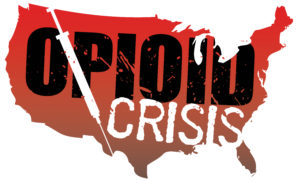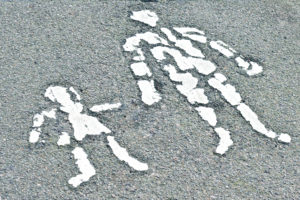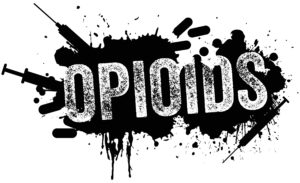United Church of Christ CHHSM Ministries Serve Others Amid Opioid Crisis
 M. battled opioid addiction for almost two decades. First oxycodone and alcohol. When that wasn’t enough to numb his anguish, cocaine. Finally, heroin. Two days after being released from a short-term recovery program, M. relapsed. As the injected heroin coursed through his veins, his dangerously-enlarged heart gave out. At the age of 39, M. lost his battle with addiction. And his life.
M. battled opioid addiction for almost two decades. First oxycodone and alcohol. When that wasn’t enough to numb his anguish, cocaine. Finally, heroin. Two days after being released from a short-term recovery program, M. relapsed. As the injected heroin coursed through his veins, his dangerously-enlarged heart gave out. At the age of 39, M. lost his battle with addiction. And his life.
In the path of destruction that the opioids had carved, two young sons and other family members were left to cope with the loss of their loved one.
Each day in the United States, more than 116 people die from opioid-related drug overdoses, according to the U.S. Department of Health and Human Services. And that number is growing. From 1999 to 2015, says HHS, the number of deaths from prescription opioids quadrupled.
The task of trying to help people recover from abusing opioids falls to many hospitals and nonprofit health and human service programs. For United Church of Christ health and human service ministries trying to make a difference, the call to heal and provide services — to live out the UCC’s love of neighbor — often is a daunting challenge.
One of the biggest problems, says Valerie Kruger of Every Child’s Hope — a CHHSM ministry based in St. Louis that works alongside partners to bring services to children and families — is that families do not have access to the funds that are needed for the treatment that is available in the community. Also there are waitlists for most programs.
“When a parent is ready to admit themselves for detox and treatment … they must wait,” Kruger says. “By the time their bed is available, the parent has often resumed using in an effort to prevent withdrawal [symptoms].”
Kruger’s colleague, Susan Bechtle, agrees. Due to the opioid crisis, “services are not as readily available as they once were — in-patient treatment is full or there is a waitlist,” she says. “There are not a lot of services out there to support clients with opioid addiction and [their] families.”
Often, CHHSM ministries find that the severity of addiction to opioids is part of the problem.
“Probably the most unique aspect of the crisis is the devastation of what opioids do to the user and family,” says David Weathersby, vice president of child and family services for Centerstone Kentucky, a mental health service provider. “For alcohol and cannabis, for instances, you may hear the term ‘functional user.’ That term is not associated with opioids because of the high level of addiction and the damage that it does to the body and brain in a short amount of time.”
The end result, Weathersby says, is “the disrupting to the family income, the reduction in care and attachment to children, and the inevitable involvement of child welfare and criminal justice.”
CHHSM member Uspiritus, a Louisville, Ky.,-based ministry providing comprehensive care for youth and families, has long partnered with Centerstone Kentucky. In December, the two — both based in Louisville — will unite to better serve their Kentucky communities.
And the Children Suffer

Many CHHSM ministries that specialize in families and children services have seen a dramatic increase in the number of children who cannot be reunited with their parents due to the parent’s opioid abuse.
“We have seen an increase in biological parents who neglect their children based upon their drug addiction — primarily opioid addiction,” says Sharon McDevitt of Hoyleton Youth and Family Services in Fairview Heights, Ill, near St. Louis. “These parents most often have difficulty in completing treatment and other services to be able to get their children returned to them.”
This leaves the children in the hands of the local Department of Child and Family Services, with the goal of adoption, McDevitt says.
“The parents have to want to make the changes in their lives and often times, losing their children to the system is not a strong enough rock bottom” to fight the pull of opioid addiction, says ECH’s Kruger. “Sometimes it takes years, or losing several children, before they make that choice to make the changes needed.”
People struggling with opioid addiction also can play the system, Susan Bechtle says.
“Addicts tend to be more manipulative than clients without addiction,” she adds. “This manipulation makes it harder to build rapport and trust, and work towards the common goal of reunification.”
In Kentucky, says Weathersby, the Office for Drug and Alcohol Policy reports that in 2017, 83 percent of the new crimes committed were drug related.
“What that means is a record number of families being involved in the child welfare system and a record number of children being separated from their primary care givers,” Weathersby says. “So we are serving more children in state’s care, more families with … court involvement, and correspondingly, more children who have been impacted by trauma.”
“Finally, opioids are deadly, so we have increasing family situations where a family member has died,” causing grief and loss issues, he adds.
McDevitt concurs. At Hoyleton, three parents from client families have died of opioid overdoses in the past year.
 “One of these was a father who had actually completed services, including drug rehab, and was at the point of unsupervised visitation with his children,” she says. “We were moving toward overnight permission for him. He had dental work done, and the dentist prescribed pain medication, which triggered his addiction symptoms. He was later found in a parking lot with a needle in his arm, deceased.”
“One of these was a father who had actually completed services, including drug rehab, and was at the point of unsupervised visitation with his children,” she says. “We were moving toward overnight permission for him. He had dental work done, and the dentist prescribed pain medication, which triggered his addiction symptoms. He was later found in a parking lot with a needle in his arm, deceased.”
Not only is there grief and loss to deal with for the family, but also for the staff.
“I have been with Hoyleton for seven years, and this is the first year we have experienced parent deaths from opioid addiction,” McDevitt says. “It is devastating for the children who are left with no parent; for the relatives who have not only lost a son or daughter, but have no future hope of the person turning their life around; and for our case managers and supervisors who work so closely with these parents to continually give them courage and hope that they can progress in services to regain their family.”
Death from opioid overdoses is “leaving a hole that is impacting all,” says McDevitt. “Addiction adds another difficult … hurdle for these families.”
Mental Health Issues Complicate the Treatment
Kruger and Bechtle say that the best way to serve families impacted by opioid addiction is to combine a highly-structured and supportive aftercare program with mental health services.
“Treatment should take a wraparound approach,” says Bechtle, “and help the client identify natural supports within the community.”
“Mental health services should go hand-in-hand with drug treatment,” adds Kruger. “When someone is receiving help for their drug addiction, they should also have access to mental health services.” Unfortunately, in many cases, she says, “psychiatric care and trauma therapy is almost nonexistent unless an individual has insurance, which many of our clients do not have.”
McDevitt also advocates for increased access to mental health services, “being able to quickly link clients with mental health issues to community providers; and to continue to decrease the stigma of seeking mental health care.”
Often times, she says, people use drugs to mask the trauma symptoms they are experiencing.
Looking to the Future
 A lack of enough opioid-specific treatment programs and the funds with which to operate them is a problem in many areas of the country, say the CHHSM member case managers who work with drug-addicted clients.
A lack of enough opioid-specific treatment programs and the funds with which to operate them is a problem in many areas of the country, say the CHHSM member case managers who work with drug-addicted clients.
“I find that clients with opioid addiction relapse at a higher rate than clients with addiction to other substances,” Bechtle says. “The lack of opioid-focused treatment programs makes it challenging for these clients to fight their addiction and recover.”
Centerstone Kentucky’s Weatherby says one possible solution might be increased partnerships between local churches and area health and human service agencies.
“Link your church’s ministries with more prevention-related activities,” he says. “Churches could do a lot around prevention, but they have to be willing to partner with other public and private agencies. Earlier intervention and prevention are huge needs.”
Another need, says ECH’s Bechtle, is better education. “A program of helping families to better understand opioid addiction could be helpful,” she says, “especially if it included a family therapy approach.”
Both Weathersby and Hoyleton’s McDevitt see a need for better post-prison service and support programs.
We need “programs to assist clients when they are released from prison,” McDevitt says, in order to help them “recreate a health, functional lifestyle.”
“Work with your state and federal legislators to make changes in our justice system,” Weathersby adds. “Let’s make possession of substances not a felony, but a misdemeanor; and instead of court-ordered incarceration, let’s try court-ordered treatment.
“Our jails are full of people with problems of opioid abuse and addiction. The fear-based response is that these people ‘need’ to be incarcerated. We have more people incarcerated than at any time in our history. These folks need treatment.”
Read about the resolution on the opioid crisis that CHHSM will bring to the UCC’s General Synod next summer. The resolution will highlight the issues of access to treatment, and pharmaceutical ethics.
Here is a downloadable infographic, from the U.S. Department of Health and Human Services, containing recent statistics on the opioid crisis.
Join Our Mailing LIst
"*" indicates required fields
Follow on Facebook
Hoyleton’s ‘Be the Light’ Honors Volunteers, Raises $94,000 for Programming - CHHSM
www.chhsm.org
Hoyleton (Ill.) Youth and Family Services lit up the room Feb. 28 during its 42nd Annual Hoyleton Honors celebration. With the theme of “Be the Light,” Hoyleton highlighted the numerous ways the o...